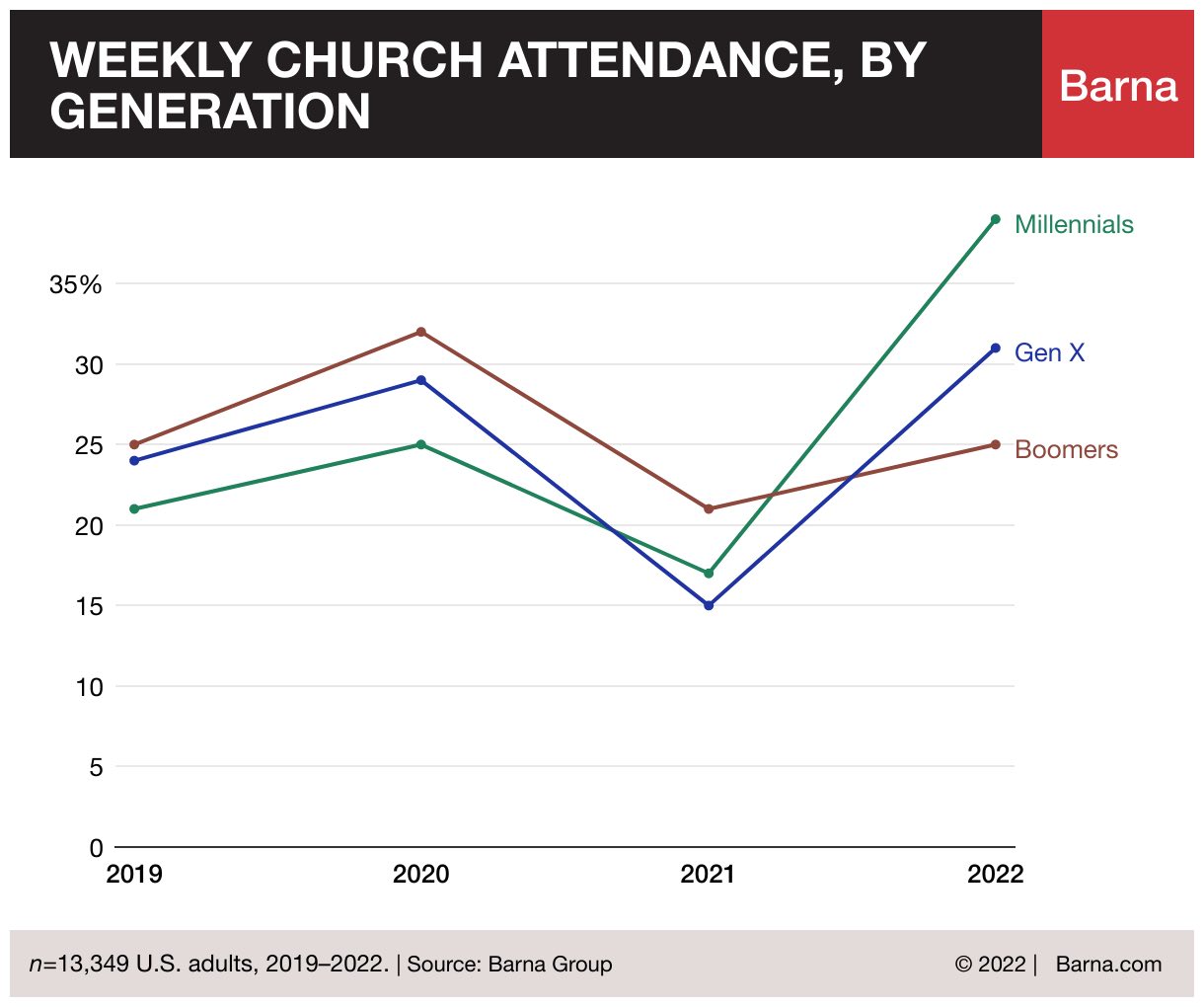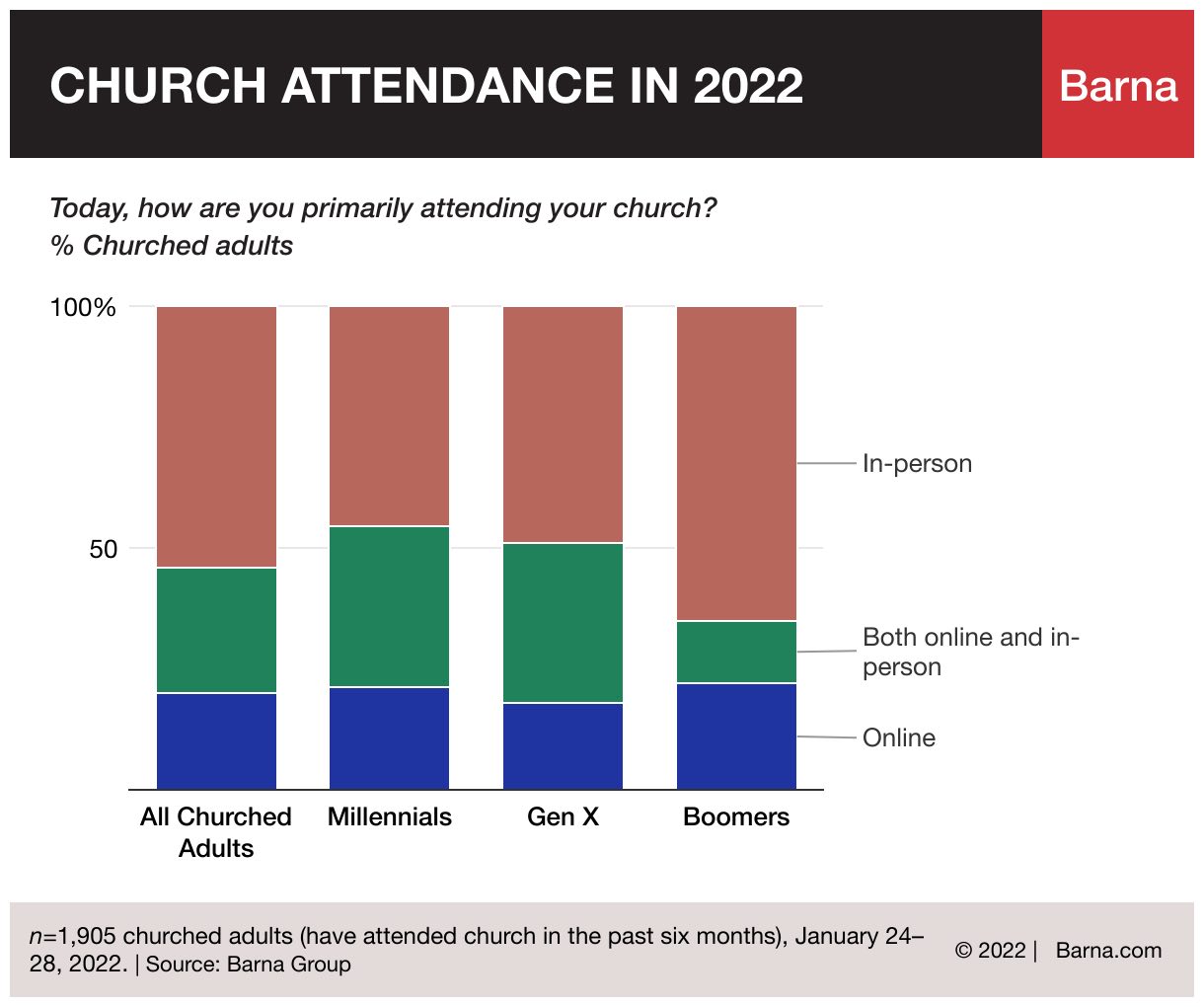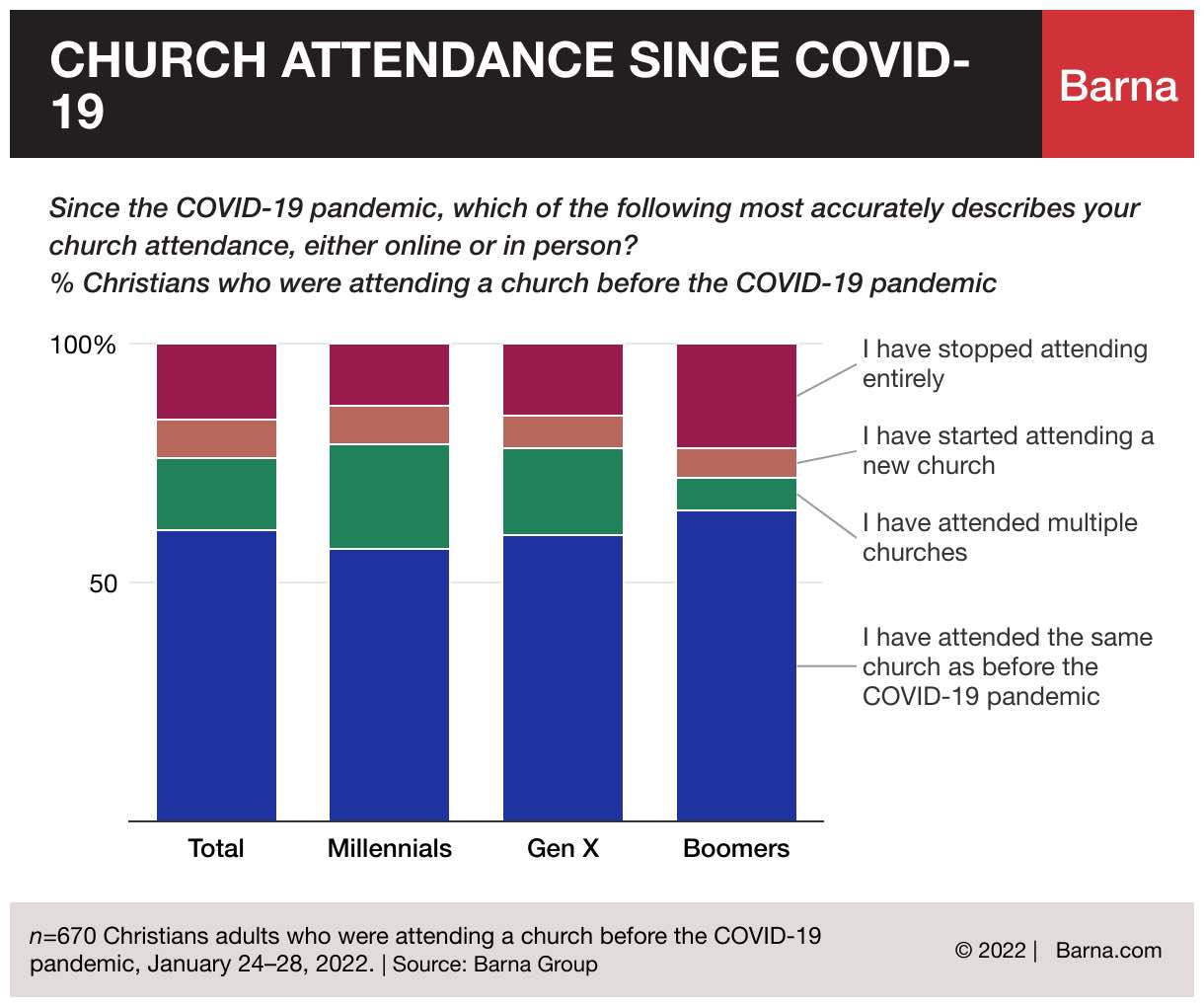Getting Your Church to Come Back in 2023

The past three years have been exceptional, forcing church leaders to adapt to a rapidly changing ministry landscape. Many face a decline in church attendance, as prior means of worship and community building have been overturned by the pandemic and other societal changes. As the world recovers, it's imperative to consider how to bring people back to the fold.
I wrote about this a year ago › and have been eyeing studies on the topic since. I've also witnessed these trends play out in my church and in churches in my area and spoken with ministers around the country who have seen similar things.
Below is what I've gathered about our current moment as well as suggestions for how to navigate each trend. These suggestions come from the experience of ministers I've spoken to who are seeing growth at their churches.
Let's begin with a clear understanding of the challenging trends ahead...
Broad Trends
Far fewer people identify as Christian than at any other time in living memory. Pew Research Center found the percentage of self-professing Christians in America declined by over 10 points › during the past decade, from 75% to 63%. Most of the people who walked away from Christianity moved into the "religiously unaffiliated" category.
The same goes for weekly church attendance. Multiple recent studies have found that less than one-third › of Americans attend worship service every week or almost every week. The number of people who attend seldom or never has grown sharply.
But there are a few encouraging trends. Keep reading!
Millennials
Millennials made up the largest surge in return attendance last year.

I'm a millennial. Over the past decade-and-a-half, I've watched leaders and experts spill a river of ink trying to get a handle on my generation. There was great concern that the church shutdowns would lead to a mass exodus of millennials out of ministry for good. The data says that's not the case.
My generation is going through important life stages right now. We're getting married, buying houses, and having children (albeit later and at lower rates than generations prior). We're also suffering through a crisis of friendship › that leaves many of us starving for connection.
Churches are perhaps the best-equipped institution to meet millennials where they are and fill their needs. In my anecdotal experience, those that both invest in their children's ministry, as well as do neighborhood outreach, tend to draw more young families back to the pews.
Boomers
There are two charts that stand out in Barna's recent study › on Church attendance since the start of the pandemic:

This chart reveals an equal share of Boomers and Millenials prefer online service. And in-person attendance was preferred over each of the other two options by every generation, including Millenials.
This next chart really caught my eye, though...

Boomers have remained steadfast and loyal to their churches. More of them stuck it out with their church than all other generations. Churches have been able to count on their older members to remain faithful through thick and thin. However, compared to Millenials and Gen X, a larger share of Boomers quit church altogether.
This was the most surprising finding. This means that for this generation, it's all or nothing. If they're not attending the church they attended before the pandemic, they're not attending at all.
We have an opportunity to reach the Boomers that used to be in the pews every week, but that opportunity closes if we sit idle. The churches this generation attended before the shutdowns still hold a special significance in their lives, but that significance wanes if we don't double down our efforts to reconnect with them.
If possible, consider reaching out to older former members of your church and inviting them to the church for coffee or a meal with the pastor (bring as many of the leadership team as possible. All hands on deck!). Or go even further and have leaders invite these former members into their homes to catch up and reconnect. Ministers who have taken extra steps to rebuild this bridge have seen more of these members step back into the church.
Hybrid Churches Are The Future
Younger generations have embraced both in-person and online worship. A majority of every generation prefers in-person but a larger portion of younger churchgoers have no problem tuning in from elsewhere. Even older generations have gotten used to this way of worshiping.
The trend matches what we've seen with online giving › and how that can secure the future of your church. This means that offering a livestream helps retain younger generations, at least in the immediate term. When their lives prevent them from worshiping in the building, giving them the option to tune in remotely keeps them from "falling out of the habit" of regular worship.
Never stop emphasizing in-person gatherings. This is where deeper discipleship happens. But if there will ever be a time to phase online service out completely, now is not that time.
Reasons to Hope
Religious attendance is still at an all-time low. Over a year ago, I wrote about Gallup's survey that found less than half of Americans are members of a church. This is still true › even in light of returning numbers.
But the number of returning churchgoers still grows. Lifeway found that 91% of churchgoers › plan to attend church as much or more when they feel they can return. A major goal of any ministry should be to connect with past members and encourage them to return. The data suggests they are eager but may need a nudge.
Recent years have left people hungry for community. Programs and outreach will help churches regain footing, but the path forward is the same path we've always had before us: Serving our flock and showing a lost world what real Love is. These two things will do more to sustain us than any program ever could.
We're With You Along The Way
The final reason to hope is that you're not alone. ChurchTrac is with you for the long haul. No matter what the future looks like for your church, we will be with you every step of the way as your dedicated partner in ministry. Whether you need assistance or a listening ear, we'll keep the light on for you. Reach out › to us anytime.
Also, join our Facebook group › to be a part of a vibrant, growing community of other like-minded people who understand the unique challenges your church faces. I'm biased, but I think it's the best community on the internet.

|
Matt
|